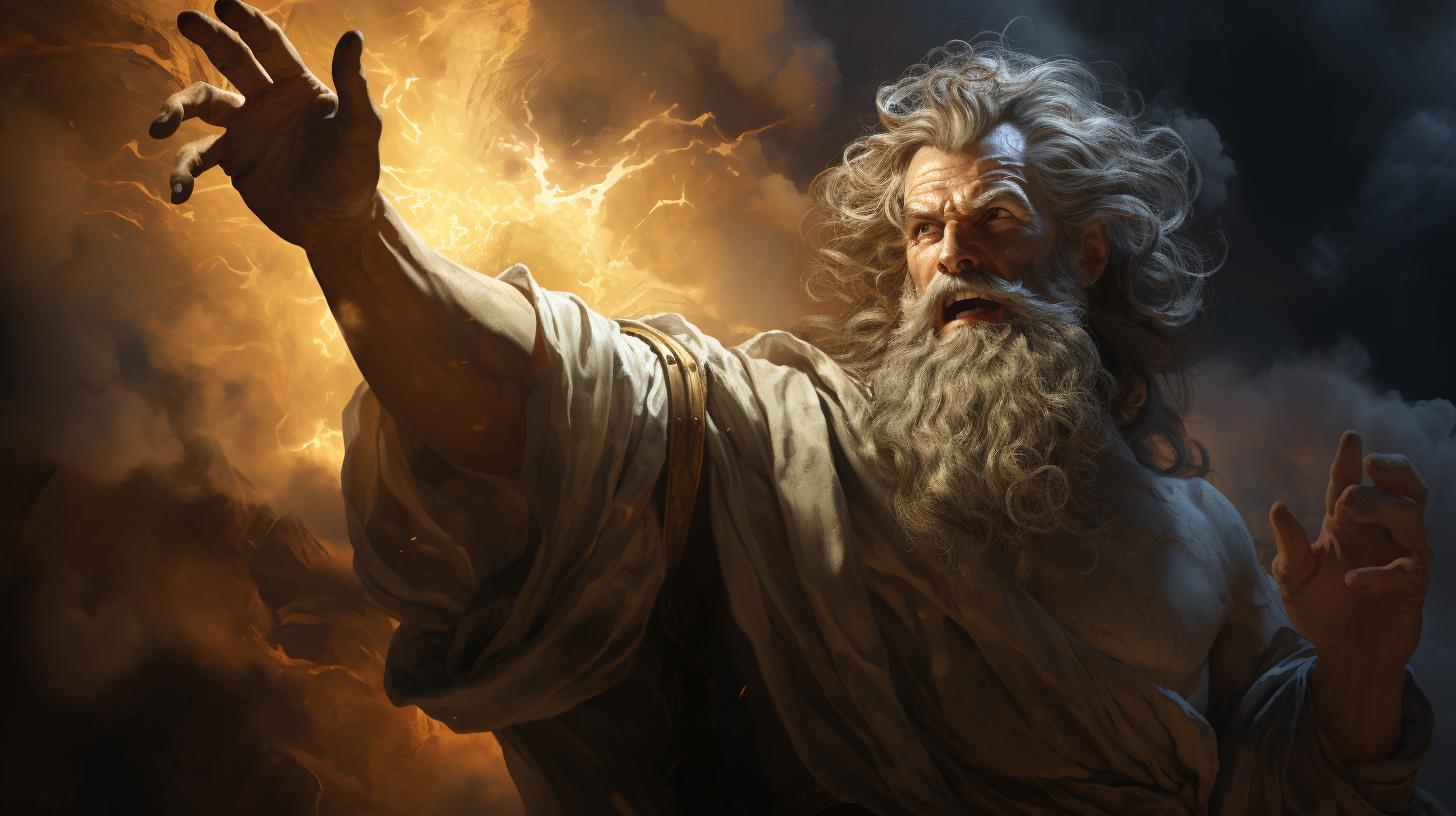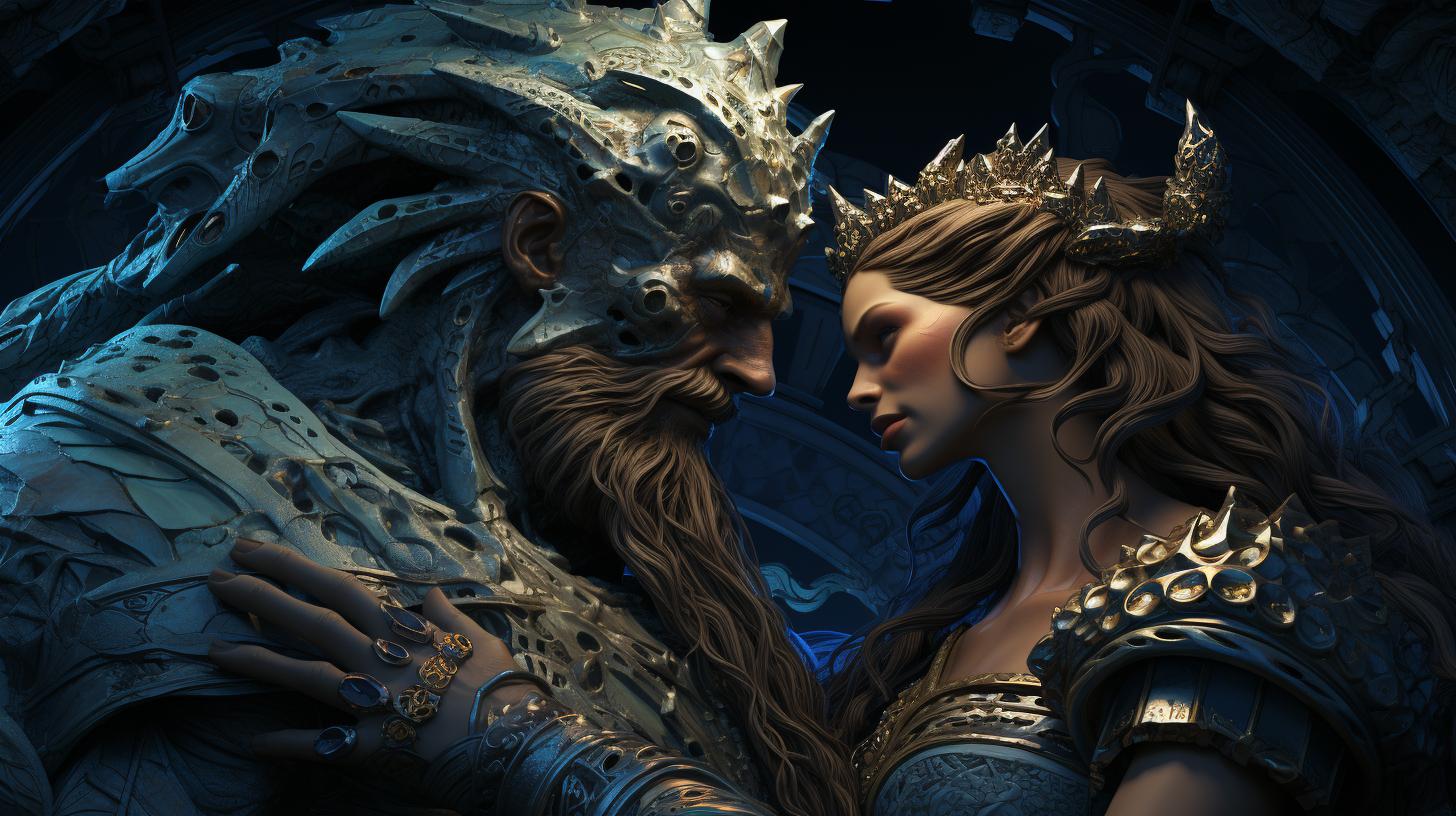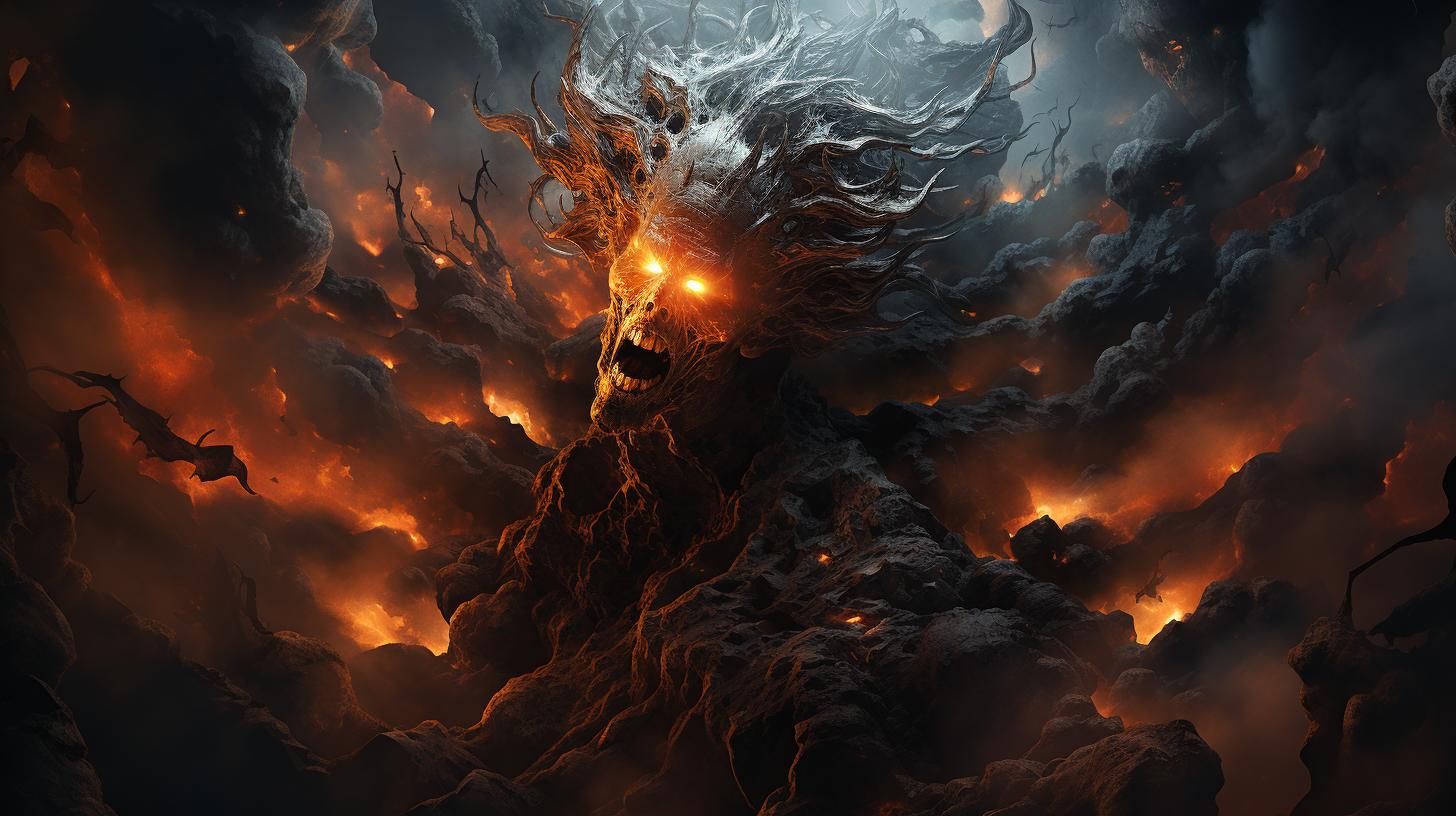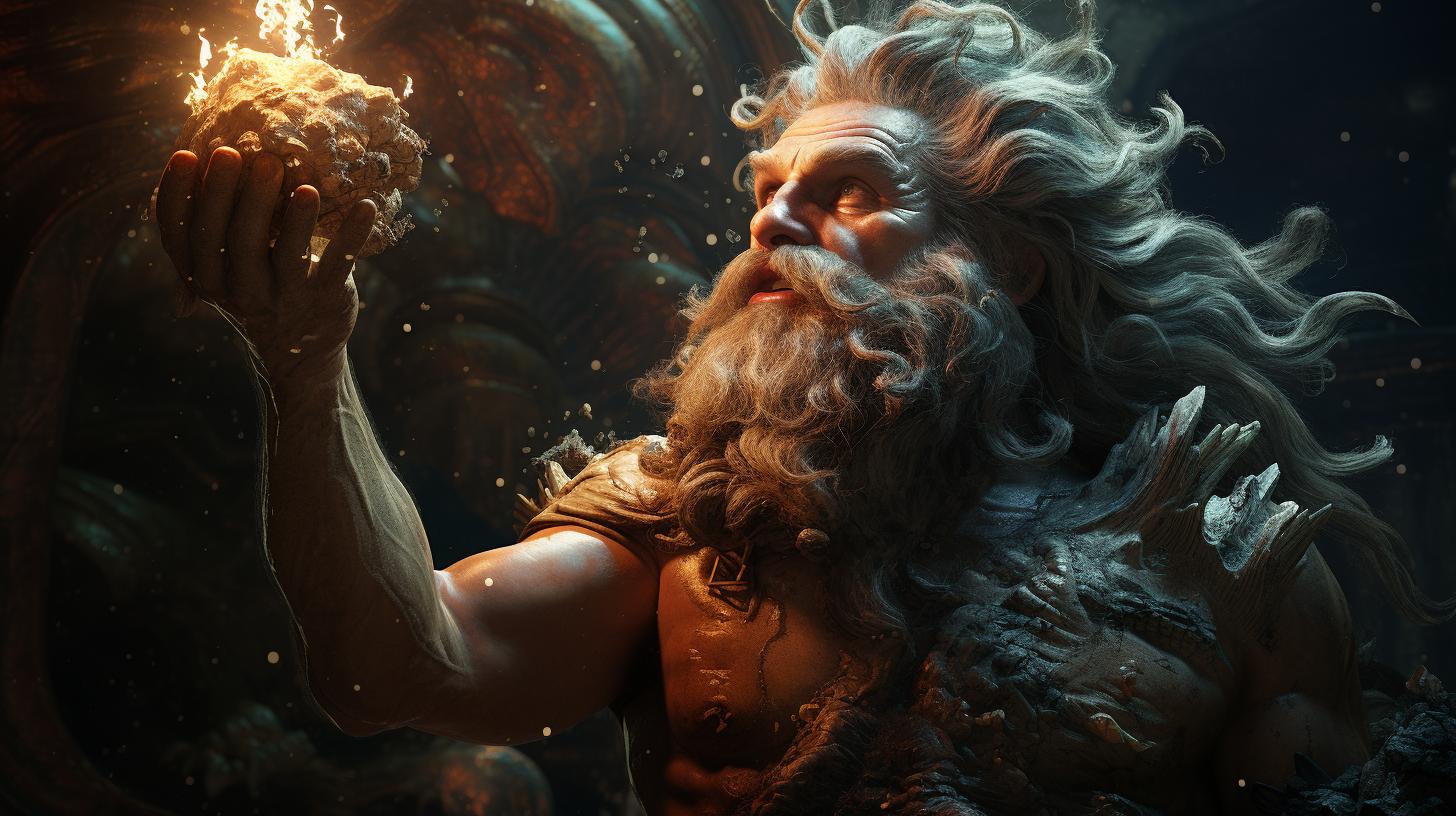Mnemosyne Greek Mythology: Unveiling the Forgotten Goddess of Memory

Mnemosyne Greek mythology is a captivating topic that sheds light on the forgotten deity of memory. From her lineage tracing back to Gaia and Uranus to her union with Zeus, Mnemosyne’s story intertwines with the birth of the nine Muses.
Exploring their roles, specialties, and myths associated with them, we delve into the significance of memory in Greek mythology. Hesiod’s Theogony and Mnemosyne’s relationships with other goddesses offer further insight.
Additionally, we uncover Mnemosyne’s presence in art, literature, and her enduring legacy in the modern world.
The Genealogy of Mnemosyne
The origins of Mnemosyne, the goddess of memory in Greek mythology, trace back to the ancient primordial deities. Mnemosyne’s lineage can be traced from Gaia and Uranus to her union with Zeus and the birth of the nine Muses.
Let’s dive deeper into each aspect of her genealogy:
Mnemosyne’s Lineage: From Gaia and Uranus to Zeus
Mnemosyne descends from Gaia, the personification of Mother Earth, and Uranus, the embodiment of the sky. This divine ancestry highlights her connection to the natural world and cosmic forces.
Mnemosyne’s lineage positions her among the earliest and most powerful deities of Greek mythology.
The Maternal Contribution: Gaia as Mnemosyne’s Mother
Gaia plays a crucial role as Mnemosyne’s mother, birthing her into the divine pantheon. As the goddess of the earth, Gaia infuses Mnemosyne with the essence of nature, grounding her in the fundamental elements of existence.
Uranus and Mnemosyne: Unveiling the Father-Daughter Connection
The relationship between Uranus and Mnemosyne unveils a unique dynamic in Greek mythology. Uranus, as Mnemosyne’s father, represents the celestial realm and imparts her with the celestial knowledge that memory holds.
Their connection gives Mnemosyne a profound understanding of the cosmos.
Mnemosyne’s Union with Zeus: The Birth of the Nine Muses
Through her union with Zeus, the king of the gods, Mnemosyne gives birth to the nine Muses, the embodiment of inspiration and creativity. This union represents the merging of memory and divine power, resulting in the birth of art, music, poetry, and other forms of artistic expression.
Mnemosyne and the Nine Muses
Discover the captivating world of Mnemosyne and her connection with the nine Muses. Unravel the mystery surrounding these inspirational goddesses and explore their roles, specialties, and the myths associated with them.
Unraveling the Riddle: Who Were the Nine Muses?
Mnemosyne, the mother of the Muses, bore witness to the divine artistry and creativity that the nine sisters embodied. The question of who these Muses were has intrigued scholars and enthusiasts for centuries, and we delve deeper into their identities and significance.
The Roles and Specialties of Each Muse
The Muses, under the guidance of Mnemosyne, each possessed unique talents and areas of expertise. From epic poetry to dance, from history to astronomy, we explore the diverse range of skills and subjects that each Muse personified.
Mnemosyne’s Influence on the Creative Processes of the Muses
Mnemosyne, as the goddess of memory, played a pivotal role in shaping the creative endeavors of the Muses. We examine how her influence resonated in their artistic expressions, inspiring their memory-based compositions and empowering their creative visions.
Myths and Stories Associated with Mnemosyne and the Muses
Throughout Greek mythology, Mnemosyne and the Muses are entwined in various captivating narratives. From their involvement in heroic tales to their encounters with gods and mortals, we delve into the myths and stories that highlight the profound impact of Mnemosyne and her Muses.
Mnemosyne and Memory
Memory holds a significant place in Greek mythology, playing a crucial role in the stories and legends passed down through generations. Mnemosyne, the goddess of memory, is deeply intertwined with this concept, embodying the power and importance of remembering.
Let’s explore the various aspects of Mnemosyne’s association with memory in Greek mythology.
The Significance of Memory in Greek Mythology
In Greek mythology, memory is more than just the ability to recall information. It is seen as a fundamental aspect of identity, history, and storytelling. Memory allows the gods, goddesses, heroes, and mortals to connect with their past and understand their place in the world.
It serves as a link between generations and ensures that the tales and lessons of old are not forgotten.
Mnemosyne as the Goddess of Memory
Mnemosyne herself personifies memory in Greek mythology. As the daughter of Gaia and Uranus, she is bestowed with the divine responsibility of preserving and maintaining the memories of the ancient world.
Mnemosyne embodies the connection between past and present, serving as a muse to inspire poets, musicians, and artists to create works that explore the power of remembrance.
The Connection between Mnemosyne and Mnemonic Techniques
Mnemosyne’s association with mnemonic techniques further highlights her significance in preserving memory. Ancient Greeks developed various mnemonic methods, such as the method of loci and the use of vivid imagery, to enhance memory and facilitate the retention of knowledge.
Scholars and poets would invoke Mnemosyne’s aid before embarking on their endeavors to tap into the depths of their memory.
Memory as a Tool for Storytelling and Preserving History in Greek Mythology
Memory plays a vital role in storytelling and preserving history in Greek mythology. It allows myths and legends to be passed down through generations, ensuring that the gods, heroes, and their feats are remembered.
Through the power of memory, the ancient Greeks could keep their history alive, reinforcing their cultural identity and connecting with their ancestors.
Mnemosyne in Hesiod’s Theogony
Mnemosyne, the goddess of memory, is mentioned in Hesiod’s creation myth, known as Theogony. In this epic poem, Hesiod describes how the universe and the gods came into existence. Mnemosyne’s mention highlights her importance in the divine lineage and her role in the succession of gods and goddesses.
Mnemosyne’s Mention in Hesiod’s Creation Myth
In Theogony, Hesiod mentions Mnemosyne as one of the many offspring of Gaia (Mother Earth) and Uranus (Father Sky). She is depicted as a Titanide, one of the older generation of divine beings who laid the foundation of the cosmos.
Mnemosyne’s Role in the Succession of Gods and Goddesses
Mnemosyne played a significant role in the succession of gods and goddesses. As a Titanide, her existence symbolizes the transition from the dominion of the Titans to the rise of the Olympian gods.
She paved the way for the emergence of a new divine order.
The Invocation of Mnemosyne in Hesiod’s Epic Poetry
Hesiod often invoked Mnemosyne at the beginning of his epic poems, seeking her inspiration and guidance in his storytelling. This invocation highlights the importance of memory in preserving and recounting the myths and tales of Greek mythology.
Mnemosyne and Other Goddesses
As a prominent figure in Greek mythology, Mnemosyne had various relationships with other deities, showcasing her importance and connections within the divine pantheon.
Mnemosyne’s Relationships with Other Deities
Mnemosyne established significant relationships with multiple gods and goddesses, amplifying her role and influence. Her union with Zeus, the king of the gods, resulted in the birth of the nine Muses, highlighting her connection to creativity and inspiration.
Mnemosyne’s Interactions with the Primordial Goddesses
Mnemosyne also interacted with the primordial goddesses, including her mother Gaia and grandmother Uranus. Through these ancestral connections, Mnemosyne’s divine lineage extended back to the creation of the cosmos, emphasizing her deep-rooted presence within Greek mythology.
Mnemosyne’s Connection to Mother Earth and Sky Gods
Additionally, Mnemosyne held ties to other goddesses associated with the natural world. Her connection to Gaia, the personification of the Earth, signifies her association with the forces of nature. Moreover, her interactions with sky gods like Uranus highlight her expansive reach across the celestial realm.
Mnemosyne’s relationships with other deities demonstrate her multifaceted role and interconnectedness within the Greek pantheon. These associations contribute to her significance and further enrich the captivating mythology surrounding her.
Mnemosyne in Art and Literature
Welcome to the captivating world of Mnemosyne’s portrayal in ancient Greek art and her enduring influence on poetry, literature, and modern culture. Explore the visual representations of Mnemosyne, her impact on creative expression, and the role of memory in shaping artistic endeavors.
Depictions of Mnemosyne in Ancient Greek Art
In ancient Greek art, Mnemosyne was often depicted as a graceful and dignified goddess, embodying the essence of memory. Artists portrayed her with flowing robes, holding a scroll or book to symbolize the retention of knowledge.
Through intricate statues, vase paintings, and reliefs, Mnemosyne’s presence was immortalized, reminding viewers of the power and importance of memory.
Mnemosyne’s Influence on Poetry and Literature
Mnemosyne’s influence extended beyond visual art into the realm of poetry and literature. Poets and writers drew inspiration from her role as the mother of the Muses, channeling her association with memory in their works.
Mnemosyne became a muse herself, guiding writers to evoke vivid recollections and capture the essence of the past. Her presence infused verses and stories with depth, emotion, and a profound appreciation for the human capacity to remember.
Mnemosyne and the Legacy of Memory in Modern Culture
The legacy of Mnemosyne and the significance of memory continue to shape modern culture. Artists, authors, and filmmakers pay homage to Mnemosyne’s influence, grappling with the themes of remembrance, nostalgia, and the fleeting nature of time.
Through their creative expressions, they seek to capture the essence of Mnemosyne’s divine gift and the power it holds in preserving our collective history and personal experiences. Mnemosyne’s enduring legacy serves as a reminder of the timeless relevance of memory in our lives.
As we delve deeper into the captivating realm of Greek mythology, it becomes evident that Mnemosyne holds a significant place among the pantheon of deities. She is not just an ordinary goddess but a divine embodiment of memory itself.
Mnemosyne’s importance in Greek mythology is multifaceted, intertwining with various aspects of the mythological world.
Mnemosyne’s Role in Preserving History
Mnemosyne’s role as the goddess of memory is closely tied to the preservation of history in Greek mythology. Through her divine powers, she ensures that the tales and deeds of gods, heroes, and mortals are not forgotten.
By honoring Mnemosyne, the ancient Greeks sought to maintain a collective memory of their past, thus establishing a strong connection with their ancestors.
The Impact on Oral Tradition and Storytelling
Mnemosyne’s influence extends beyond the realm of memory itself; it greatly affects the art of storytelling and oral tradition in Greek mythology. Poets and bards draw inspiration from the memories channeled by Mnemosyne, crafting epic poems and immortalizing the heroic epics of gods and mortals alike.
Mnemosyne’s Significance in the Birth of the Muses
It is through her union with Zeus that Mnemosyne becomes intricately linked to the birth of the nine Muses. These goddesses, known for their creative inspiration, draw upon the memories instilled by their mother to fuel their artistic endeavors.
Mnemosyne’s connection to the Muses amplifies her importance within Greek mythology, as she becomes the wellspring of creative genius.
Mnemosyne’s Enduring Legacy and Significance in the Modern World
Although thousands of years have passed since the ancient Greeks worshipped Mnemosyne, her enduring legacy transcends time and continues to influence various aspects of modern culture.
Mnemosyne’s Influence in Language and Mnemonic Techniques
The very concept of memory, derived from Mnemosyne’s name, has inspired the development of mnemonic techniques utilized to enhance memory retention.
From ancient memory palaces to modern memory training, Mnemosyne’s name is synonymous with memory-enhancing methods that have stood the test of time.
Representation in Art and Literature
Throughout history, artists and writers have perpetuated Mnemosyne’s legacy through their works. From ancient sculptures and paintings depicting her divine presence to modern reinterpretations in literature, Mnemosyne remains a potent symbol of memory, inspiring new generations of creatives.
Mnemosyne’s Influence on Psychology and Neuroscience
In the fields of psychology and neuroscience, Mnemosyne’s legacy lives on as researchers explore the intricate workings of memory within the human brain. The study of memory formation, retrieval, and its various cognitive processes owes its roots to the ancient concept of Mnemosyne.
Mnemosyne’s enduring legacy and significance in the modern world serve as a testament to the timeless power and importance of memory. As we navigate through the complexities of our own lives, we can find solace in the divine presence of Mnemosyne, the goddess who ensures that our memories endure.
.




















